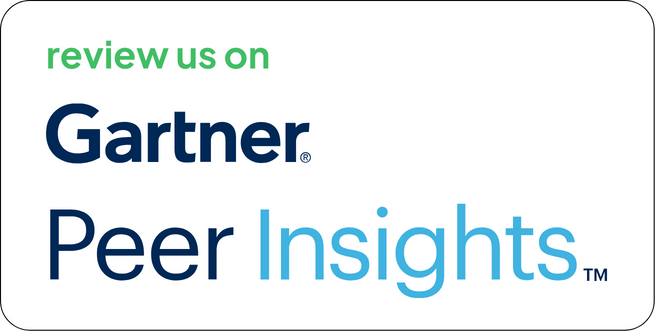Security-aware development teams are integrating GitHub-native scanners like CodeQL and Dependabot to detect software vulnerabilities early in the pipeline. But once these tools raise alerts, the real question kicks in how are those alerts acted upon? How quickly do the right engineers get notified? How do we ensure that critical flaws aren’t lost in the backlog or buried in emails?
This is where Strobes comes into play. As part of its Continuous Threat Exposure Management (CTEM) platform, Strobes integrates GitHub security scans with Slack to make code vulnerabilities actionable in real time.
This document breaks down how the integration works, its functional value, and what benefits it brings to security, DevSecOps, and engineering teams.
What Are CodeQL and Dependabot?
CodeQL is GitHub’s semantic code analysis engine. It works like a database query engine for code, identifying logical flaws, unsafe patterns, and vulnerable APIs across your codebase using structured queries.
Dependabot, also by GitHub, automatically monitors project dependencies for known vulnerabilities based on the GitHub Advisory Database and CVEs.
Together, these tools help teams identify a wide range of security issues, such as:
- Use of unsafe libraries or versions with known CVEs
- Logic flaws like SQL injection or command injection
- Insecure use of APIs, deserialization bugs, etc.
- Unmaintained or deprecated dependencies
But scanning alone doesn’t drive remediation. Actionable notification workflows are needed to close the loop.
What Is Strobes?
Strobes is an AI-backed CTEM platform that unifies detection, prioritization, and remediation into a single system. It brings together:
- Risk-Based Vulnerability Management (RBVM)
- Application Security Posture Management (ASPM)
- Attack Surface Management (ASM)
- Continuous Pentesting and Retesting Workflows
In this case, Strobes acts as the intelligent connector between GitHub and Slack. It ingests security alerts from GitHub scanners, applies contextual filters, and pushes enriched vulnerability data into relevant Slack channels.
The result: less noise, more precision, and faster engineering response.
The Purpose of CodeQL and Dependabot Integration with Strobes
CodeQL and Dependabot Integration with Strobes is designed for teams who:
- Use CodeQL and/or Dependabot across GitHub repositories
- Need better visibility into code security alerts across repos
- Want to notify developers instantly, without overwhelming them
- Aim to enforce SLA-based remediation in production-grade workflows
By connecting GitHub to Slack via Strobes, organizations reduce reaction time, improve cross-functional collaboration, and prevent vulnerabilities from sitting idle in GitHub without follow-up.
How the Integration Works?
1. GitHub Security Scans
Security scans from CodeQL or Dependabot are triggered on pull requests, code pushes, or scheduled intervals. These scans create security alerts in GitHub’s API.
Strobes connects to GitHub using secure tokens and ingests these alerts periodically, with support for multiple repos and orgs.
2. Normalization and Enrichment
Strobes maps each alert into its internal schema, extracting and enhancing the following:
- Vulnerability metadata: CWE/CVE, affected files, severity, remediation steps
- Context: branch name, repo ownership, tags (e.g., production, test)
- Git info: commit ID, author, PR link
- Exploitability: Is this vulnerability publicly known? Exploitable? Trending?
Duplicate alerts from recurring scans or PR updates are deduplicated. Reopened issues are tracked based on timestamps, not treated as new.
3. Automated Slack Notifications
Based on custom rules, Strobes pushes contextual alerts into Slack channels such as:
- security-alerts: For all critical/high vulnerabilities
- backend-dev: For issues in backend-related repositories
- devops: For CI/CD pipeline vulnerabilities
Each message includes key fields like:
- Alert summary and CVE ID
- Affected repository and file path
- Suggested remediation
- PR/commit reference
- Risk score computed by Strobes
4. Developer Actions in Slack
Once alerted, developers can immediately start discussion in the thread, tag code owners, or link the alert to Jira (if configured).
Status updates, fix confirmations, and comments are also tracked in Strobes’ audit trail.
Why This Workflow Matters?
1. Avoids Inbox Clutter
Instead of sending low-severity or test-environment issues into Slack, Strobes applies filters like:
- Only alerts with CVSS > 7.5
- Repos tagged as prod
- Commits made to main or release branches
This reduces noise and focuses developer attention.
2. Shortens Time to Acknowledge (TTA)
Teams often report vulnerability lag due to notification delays. CodeQL and Dependabot Integration with Strobes can cut down average TTA by 40–50% by sending alerts in near real-time into the team’s daily communication channel.
3. Bridges Dev and Security
With Slack as the common ground, AppSec and engineering can align on remediation with complete context, eliminating back-and-forth over spreadsheets or email reports.
Reporting and Visibility
Every GitHub alert pushed via Slack is recorded inside Strobes. The platform offers dashboards showing:
- Volume of CodeQL/Dependabot alerts over time
- Mean Time to Acknowledge and Resolve
- SLA compliance per repo, team, or severity level
- Drill-down views for active and resolved vulnerabilities
These metrics help AppSec leads evaluate not just scan coverage, but developer responsiveness and process gaps.
Who Should Use This?
This workflow is ideal for:
- Organizations with active CI/CD pipelines using GitHub Actions
- Teams practicing DevSecOps with shared security responsibility
- Security teams looking to streamline developer alerting without creating more tickets
- Enterprises enforcing SLA-based vulnerability response
Final Thoughts
Code scanning without a response plan is only half the job. By integrating GitHub scans with Slack through Strobes, security teams eliminate delay, streamline triage, and improve engineering accountability without burdening the team with more tools.
This isn’t just about notifications. It’s about creating a complete workflow that turns security signals into resolved issues.
Want to operationalize GitHub vulnerability alerts in Slack?
→ Talk to our team or Request a Demo to see this in action.




